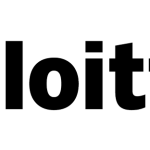Deloitte, a global consulting firm, has released a comprehensive report highlighting the immense potential of the clean hydrogen industry.
Clean hydrogen, encompassing both green and blue hydrogen, offers a versatile and scalable solution for decarbonizing various sectors, including industry and transportation. Deloitte's analysis emphasizes the importance of global collaboration, substantial investments, and strategic policy frameworks to unlock the full potential of clean hydrogen and achieve climate neutrality by 2050.
The decarbonization of industrial hydrogen uses, particularly in fertilizer production, is expected to be a major driver of demand. Deloitte's Hydrogen Pathway Explorer (HyPE) model projects that clean hydrogen consumption could reach 170 million tons in 2030 and an impressive 600 million tons by 2050.
This substantial increase in demand is crucial to achieving carbon neutrality goals, and it has the potential to reduce cumulative emissions by a remarkable 85 gigatons of CO2eq by 2050, more than double the 2021 global CO2 emissions.
The iron and steel, chemicals, cement, and high-temperature heating industries, along with aviation, shipping, and heavy road transport, are expected to account for a significant portion of clean hydrogen consumption by 2050.
By adopting clean hydrogen technologies, these sectors can significantly reduce their carbon emissions. The benefits extend beyond emissions reductions, offering nations and corporations energy security, economic growth, and resilience in the face of climate change.
Deloitte's report emphasizes the need for strategic actions to scale up the clean hydrogen economy and meet projected demand. Three critical components are identified: establishing a market foundation through national and regional policies and international coordination; urging action through targeted instruments and incentives to narrow the cost gap; and maintaining longevity by diversifying value chains and improving infrastructure design.
To maximize the worldwide potential of clean hydrogen, the report suggests massive investments of over $9 trillion in the global clean hydrogen supply chain by 2050. Developing nations alone would require approximately US$3.1 trillion in these investments.
Additionally, interregional commerce is highlighted as a crucial factor, with regions that can produce cost-competitive hydrogen positioning themselves to supply less-competitive regions. The global hydrogen trade is estimated to generate over $280 billion in export revenues annually by 2050, with North Africa expected to benefit significantly.
Deloitte has taken a proactive role in promoting the clean hydrogen industry by establishing its Global Hydrogen Center of Excellence. This center aims to assist governments and industry leaders in scaling clean hydrogen and achieving large-scale decarbonization.
Furthermore, their Hydrogen Investment Corridor strategy promotes collaboration across important hydrogen trade and investment gateways worldwide, facilitating investments and fostering the growth of clean hydrogen value chains.
To realize this potential, governments, industry leaders, and financial institutions must collaborate to establish supportive policies, make substantial investments, and ensure the development of robust value chains and infrastructure. By embracing clean hydrogen, we can accelerate the global transition to a carbon-neutral future and mitigate the impacts of climate change.
























